- Author Curtis Blomfield [email protected].
- Public 2023-12-16 20:44.
- Last modified 2025-01-23 17:01.
Artemisia essential oil is not recommended for use in conventional aromatherapy methods, as the oily liquid is toxic and should be handled with care. At the same time, the oil has a wide list of useful properties, including the impact on the psycho-emotional state of a person. At home, for cosmetic and medicinal purposes, only lemon wormwood oil is used, which has high irritating properties and less toxicity.
Plant raw materials
Properties and application of wormwood oil determines the specific type of plant. Most often you can find ether from wormwood in pharmacy chains - it is a perennial branchy plant with light green leaves and small flowers, reaching a height of one and a half meters. Wormwood essential oil is obtained from a plant with whitish stems and light green-silver leaves. Lemon wormwood oil is considered the mildest and safest. This is a low shrub (up to 80cm) with paniculate inflorescences, all parts of which exude a sweet fruity aroma.
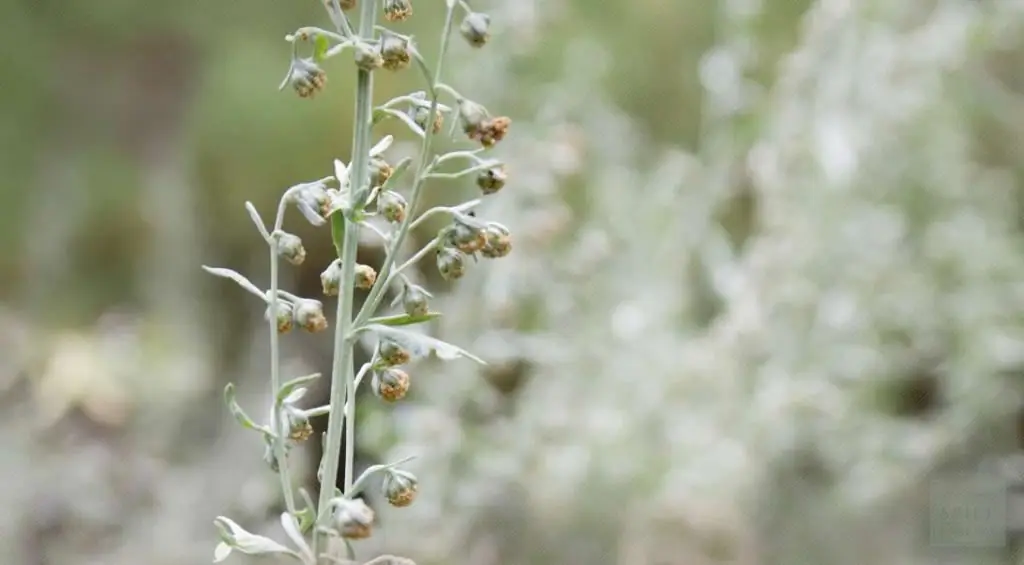
Production regions
Mugwort is grown commercially in all regions. The only exception is lemon wormwood, whose distribution area was very limited until recently. Bitter and common wormwood is grown in Russia, Southern Europe, North America (USA). Chinese, Moroccan, Hungarian, German, Japanese, Indian oils differ in quality. Lemon wormwood is grown in Turkmenistan, the Republic of Moldova and Russia.
Markings and varieties
The most valuable, due to their properties, are the essential oils of lemon wormwood (Balkhan), bitter and common labeled Artemisia balchanorum, Artemisia absinthium and Artemisia vulgaris, respectively. Sometimes manufacturers replace Balkhan wormwood (this is another official name for lemon) with Bakhyz, but this is not a complete analogue, because it only resembles lemon in aroma. For aromatherapy, only lemon wormwood is mainly used, but many pharmaceutical companies, through additional purification, rid other esters of toxic substances, which makes the products available for use. The use of wormwood oil at home is acceptable, but proceed with caution, because it is not known how the cleaning method may affect the quality of the finished product.
Poor quality products
There are practically no chemical analogues of wormwood oil on sale, because it is impracticalfake an already toxic oily liquid. Some cases of distribution of counterfeit products are usually associated with a lack of raw materials (the use of unwanted plant parts in the production, an unecological growing area, collection at the wrong time) or a change in production technology. Caution must be exercised when buying purified esters. Before using wormwood essential oil, be sure to read all the information on the label regarding the cleaning method and make sure that the manufacturer does not hide important product characteristics. In addition, recommendations for methods of use and dosage should be further studied. It is better to buy essential oils (including wormwood oil) from trusted manufacturers and reliable distributors.
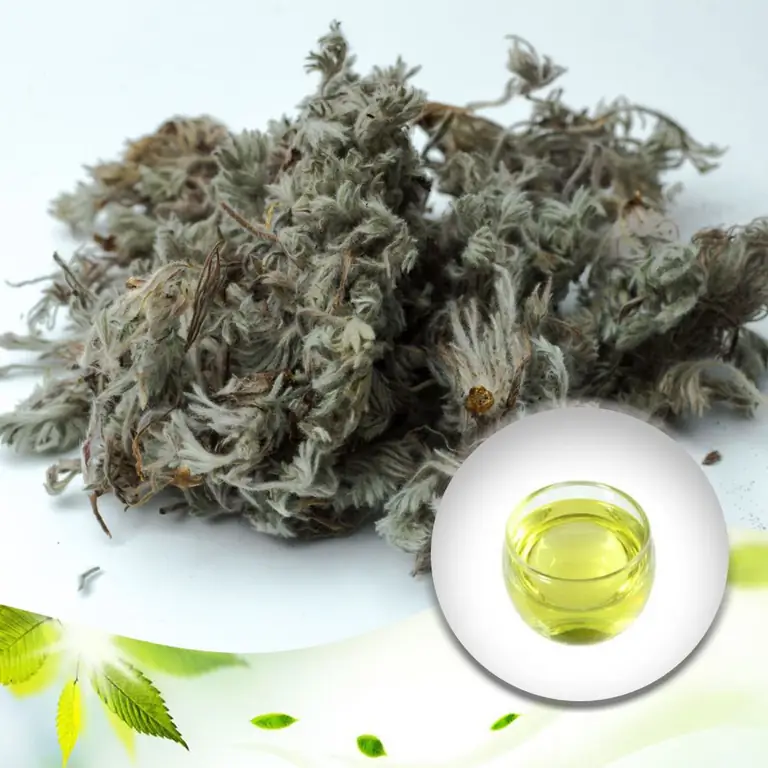
Oil production method
All oils are obtained from the aerial parts of the plant. The use of shoots is highly undesirable: ether is obtained only from leaves and flowers. As for lemon wormwood, plant materials collected during the flowering period can be used. The yield of oil is small, especially if the raw materials were collected at the wrong time (the maximum figure is 0.2% of the plant weight).
To obtain ether from common, bitter and lemon wormwood, use the steam distillation method. Pressing, solvent extraction and other methods in the production of oil from this plant are unacceptable. Lemon wormwood on sale can be represented not only by ether, but also by absolute or concrete, which without fail require priorbreeding.
The oil is highly toxic due to the high content of toxic thujone. Wormwood oil can contain up to 70% of this substance, while citral dominates in the composition of citric oil (up to 45%). Esters of Moroccan or Indian production are considered the most toxic, which must be used with extreme caution (even as part of aromatic mixtures).
Oil at home
How to make wormwood oil at home? For the preparation of medicinal raw materials, it is necessary to collect the leaves and inflorescences of the plant during the flowering period. Seeds that are harvested in late summer - early autumn have medicinal properties. Raw materials need to be finely chopped and put in a glass jar, pour in any vegetable oil (it is better to use olive oil), cork tightly and shake several times. The oil should be infused for at least two weeks in a cool and dark place. After the dark green liquid must be filtered. Store in refrigerator.
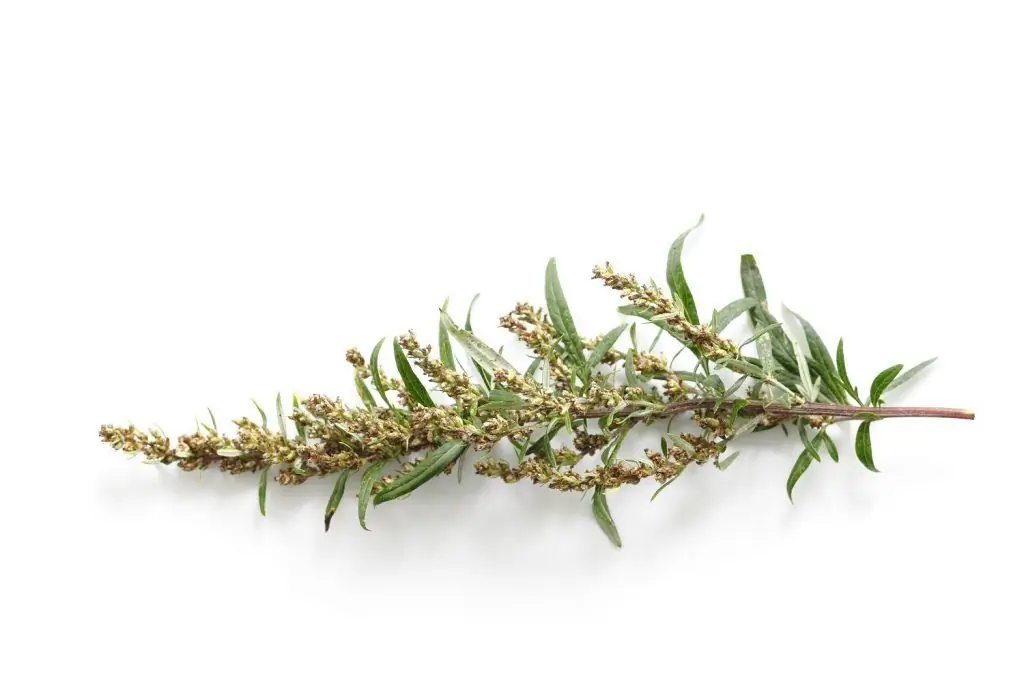
Another cooking method: grind full seeds in a coffee grinder and pour a tablespoon of raw materials with 100 ml of olive oil. Remove the composition in a dark place for a week, shake occasionally. Strain before use. And here is the old way of making wormwood oil: mix 40 g of wormwood tops and 100 ml of corn or olive oil, put in a water bath and wait for it to boil. Warm over low heat for 30 minutes, and then cool and store in a dark and cool place.
External characteristics
Artemisia oilordinary, purchased at a pharmacy, should be transparent and colorless, a slight yellowish tint is allowed. The rest of the species are practically the same, only in lemon the light yellow color can be more pronounced, and a pale color is also allowed. All oily liquids are very light and fluid. Homemade butter usually has a rich dark green hue with a yellowish sheen. Such a product must be used with extreme caution, because the plant is toxic. Only oils produced by pharmaceutical companies on an industrial scale are purified. It is unrealistic to repeat such a procedure at home.
Fragrance Features
The intense aroma of wormwood is most fully expressed in wormwood oil. Strong, full-bodied, with a recognizable bitter base and pleasing subtle undertones, it can both enchant and inspire lasting rejection, so it's important to test the product for flavor comfort. Ordinary wormwood retains all its characteristics, but the smell is much calmer and more subtle. At first, camphor and cedar notes are caught, then they are replaced by a very persistent base of dry grass. Lemon wormwood does not at all resemble medicinal herbs: candy notes successfully mask the lemon-herbaceous base. The tones are sweet, fruity, the characteristic aroma of the plant is almost not recognizable.
Combination with other oils
When using wormwood oil in combination with other fragrances, remember that this is a bright dominant that can overpower even intense fragrances. Ordinary wormwood is best supplemented with oils of patchouli, cedar,pine, oakmoss, rosemary, sage or lavender. Bitter after cleaning is used with esters of hyacinth, jasmine, lavender, oakmoss and neroli. The best additions to lemon wormwood are neroli, lavender and jasmine.
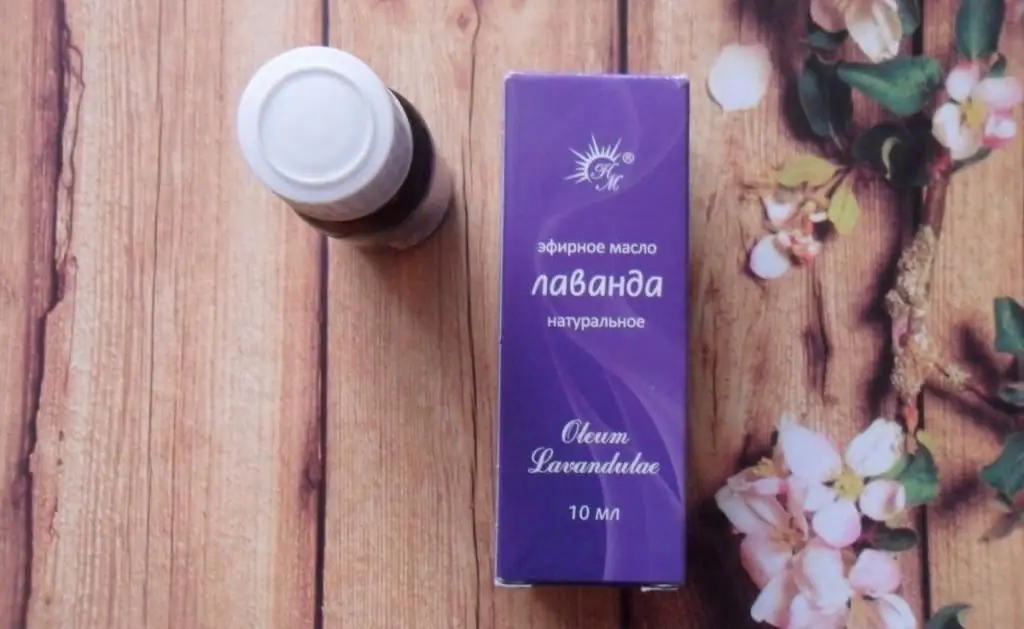
Psycho-emotional impact
The properties of wormwood oil are manifested in a strong effect on the psycho-emotional sphere. Therefore, ether should be used with caution and in minimal dosages, because it can cause a loss of concentration and even impaired consciousness. The aroma of wormwood used to be considered magical, driving away misfortunes. This strong odor gives the impression of security and safety, but the sedative-suppressive effect is deceptive and can backfire. The smell of wormwood oil is one of the best for reflection, immersion in yourself, creating the illusion of comfort and detachment from the world, good for dealing with negative emotions and stress. Perhaps this explains the popularity of this product. What other uses are there?
The properties of wormwood essential oil are well known to women. According to them, the ether helps relieve PMS and neurological symptoms of hormonal disorders, gives self-confidence and self-attractiveness, peace of mind. Women especially note the calming effect of the product. But lemon wormwood has completely different properties. This fragrance enhances performance and allows you to increase activity, eliminates fatigue and reduces the negative impact of stress factors.
Healing properties
wormwood isantispasmodic, healing, stimulant and diaphoretic, can regulate the menstrual cycle, has antimicrobial and antifungal effects. At home, it is impossible to use ether for therapeutic purposes, because wormwood oil cannot be used either internally or externally. Benefits are partially manifested by inhalation, but usually it is only about relieving spasms and increasing concentration.
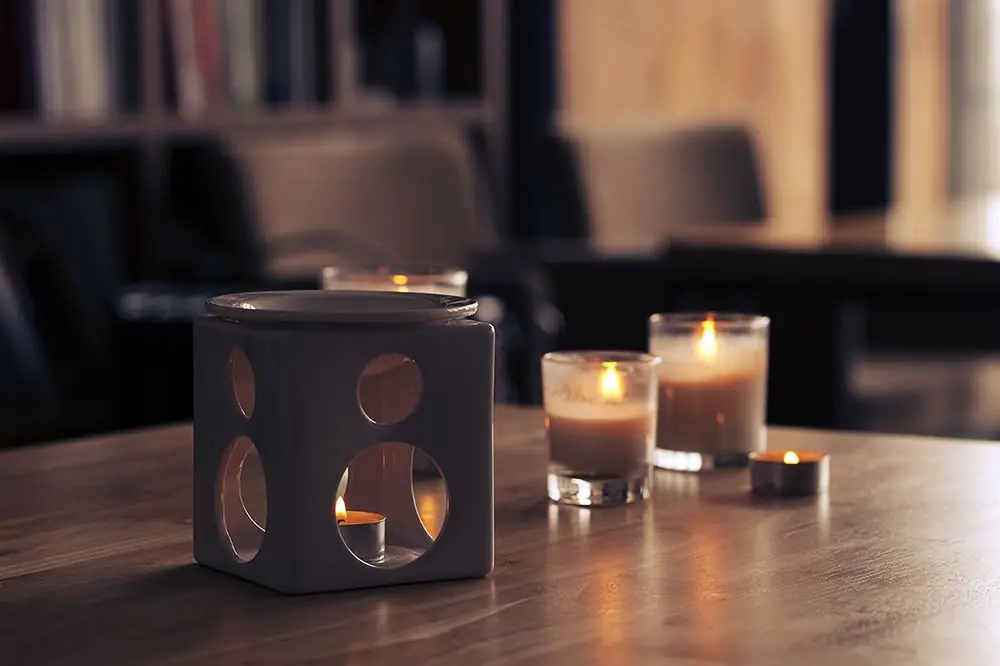
Bitter wormwood stimulates menstruation, can reduce temperature and contributes to the complex treatment of functional disorders of the gallbladder and liver. It is used for diseases of the gastrointestinal tract as a healing, tonic and softening component, but cannot be used at home.
Lemon wormwood has immunomodulating, antispasmodic, general tonic, deodorizing, expectorant and anti-inflammatory properties. Essential oil improves air characteristics, has a positive effect on the work of the heart and blood vessels, lowers blood pressure and speeds up the recovery process in various serious diseases, disinfects. These properties are determined by the use of wormwood oil to combat diseases of the respiratory system, including bronchitis, tuberculosis and asthma. In addition, this is a good preventive measure during the season of viral and colds.
Wormwood oil from papillomavirus infection can only be used after consulting a doctor, because it is a very aggressive remedy. Virus Treatmentpapilloma helps prevent further spread of the virus and eliminate growths on the body, but not a pharmacy product is used, but home-made tinctures or complex formulations. Pharmaceutical oil is recommended to be mixed with almond and olive, and if the warts are localized on the genitals or in the armpits - with tea tree oil. The agent is applied with a cotton swab to the wart three times a day. In the process of treatment, the papilloma begins to dry out and disappears. The duration of treatment depends on the size of the growth.
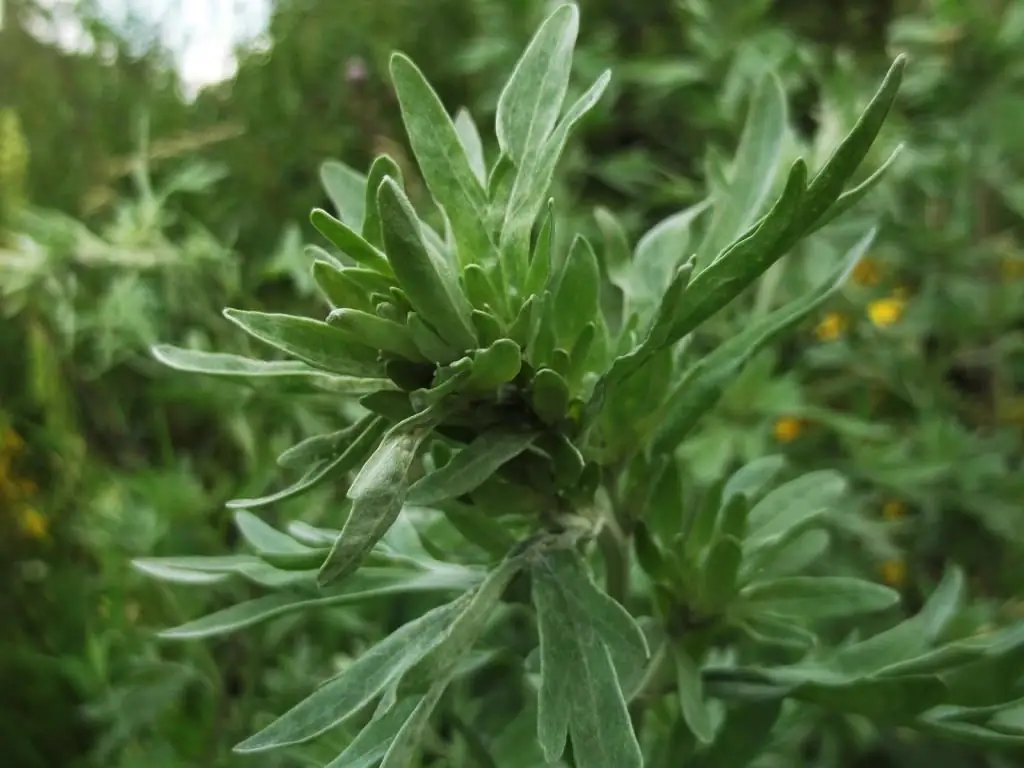
Cosmetic properties
The properties of wormwood essential oil have been used in cosmetology and dermatology. Ether has the ability to eliminate warts, tone and rejuvenate the skin, heal wounds, regulate the fat content of the epidermis, and helps fight dandruff. At home, it is not recommended to use oil, unless we are talking about purified oil. Despite the above useful properties, ether is usually not used in cosmetology. But the properties of the plant are manifested when using the product to improve the characteristics of cosmetics (the extract is added to shampoos, masks, tonics, cleansers, and so on).
Home use
The use of wormwood oil for household purposes is a fairly common practice. It is a strong insecticide that is used to control insects, decontaminate and sterilize surfaces. Artemisia is made up of fragrances, personal fragrances and fragrances that are not applied directly to the skin. The aroma is dominant, so it suppresses even persistent oils, so it is used in compositions in minimal quantities. Wormwood is suitable for male compositions. Bitter wormwood in the food industry is used to flavor non-alcoholic and alcoholic beverages. Lemon is used in the manufacture of perfumes, as well as in the food industry. It is also an effective household insecticide.
Application features
Wormwood oil requires special care in application. Because esters are toxic, they should not be applied directly to the skin or taken orally. The only possible use involves the inhalation of the aroma, and for wormwood, such use is limited. The aroma of the plant can cause nausea, uncontrollable fears and anxiety, restlessness, serious sleep disturbances, so it should be used with caution. Lemon wormwood ester can cause skin irritation. Oils should not be used for more than two weeks without a break, use during pregnancy is strictly contraindicated (even in aromatic compositions), because wormwood, having an embryotoxic effect, can provoke spontaneous abortion.
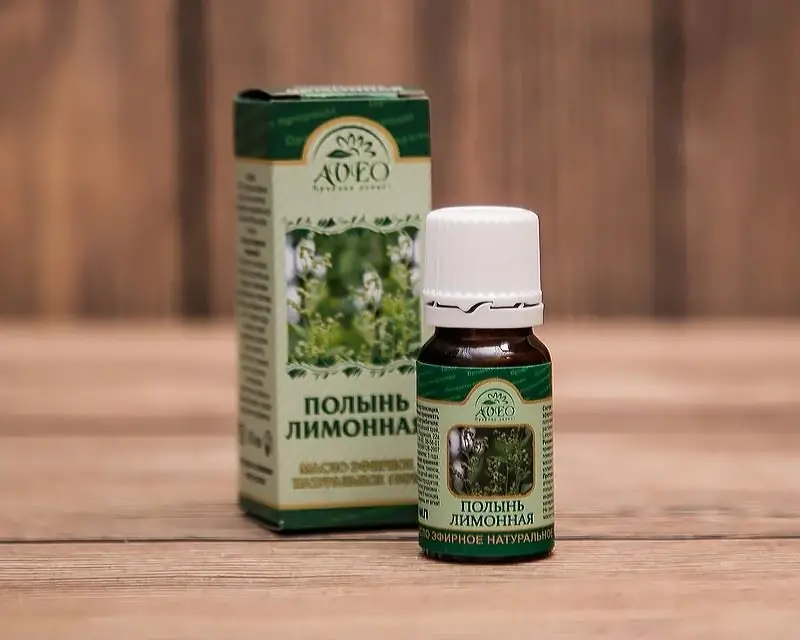
Applications
Specific methods of application of wormwood oil differ for different types of product, but all dosages should be minimal. Bitter wormwood is used only for short-term psychotherapy sessions. Cold inhalations lasting no more than five minutes are acceptable with a starting two to three minutes. Ordinary oilwormwood is used to flavor water for disinfection (this is an effective way to get rid of bedbugs, fleas and other insects, but requires caution if there are small children and pets in the house) in an amount of one to three drops. One or two drops are enough for an aromatic lamp, in perfume mixtures that do not involve direct contact with the skin, ether should be added one drop at a time until the desired result is achieved.
Lemon wormwood oil can be used for aromatization of rooms using aromatic lamps, in massage mixtures, aroma baths, compresses and applications, for enrichment of cosmetics, air humidifiers, disinfection of floors and surfaces, in aromatic mixtures. In massage mixtures, it is enough to add two to five drops of wormwood ether per 30 ml of base oil, in aroma baths - one or two drops per procedure, in applications and compresses - no more than six drops per bandage, to enrich cosmetics - no more than two drops per 10 ml base, for air humidifiers and floor disinfection - no more than four drops per room. Refined oils can be used in the same dosages as lemon wormwood ester.






